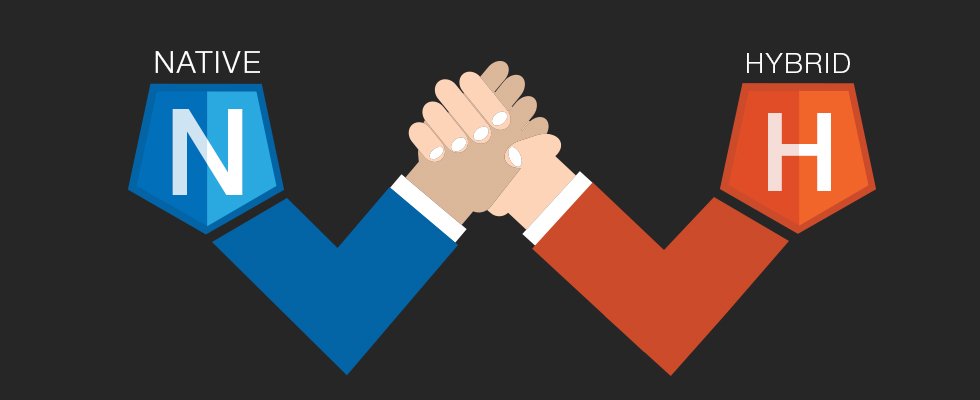It is a never-ending battle between Hybrid Vs. Native mobile app development. Both the techniques have their pros and cons and I am going to detail the same in this write-up. Before that, let’s have a detailed discussion on the hybrid and native app development ecosystem. The technical aspect of both the app development approaches differ a bit from other. As the requirements of hybrid and native applications are a bit different so is the process that goes on to the development.
Irrespective of the development approach (hybrid and native) the basic requirement of each app remains the same. The swipes within the app, the gestures, the headers and other such elements should be the same in order to provide an exceptional user experience. The performance of every application should feel right irrespective of the technology it has used. Now, let’s find out the points of differences in hybrid and native mobile app development.
The Basics Of Hybrid Mobile App Development
Hybrid apps have the basic essence of HTML5 and thus they can do everything that revolves around HTML structure. Such apps have the additional property of native apps too and it the reason behind the popularity of these apps. Hybrid apps are built in HTML5 and Javascript structure with an additional native container. These apps load the information as users browse through the different sections, which is not the case with the native apps.
The Basics Of Native Mobile App Development
A native app is specifically developed for a mobile operating system. These apps are written with specific languages to suit the demand of any given platform. For iOS, it is swift and objective C and for Android apps it is java. Native apps make use of Integrated Development Environment for the given operating system. Apple and Google offer the specific set of development tool to create apps using native environment.
Let’s move on to the benefits of utilizing each of these applications
Benefits Of Native Apps
Fast and responsive
Native apps offer an experience that is much fast, most reliable and most responsive. Such apps add more to the user experience by guiding them efficiently to each app section. This adds to the popularity of these applications.
Apps Having Winder Functionality
While developing native applications it becomes easier for the developers to tap the benefits including swipe gestures, camera, microphone. Adding these functionalities is super easy and that is why the demand for such apps is growing.
Push Notification
Native apps make the best utilization of push notifications. It becomes easier to add the function in order to alert the users when their attention is required towards an application.
Benefits Of Hybrid Apps
Hybrid Apps Need One Codebase To Manage The Things
The codebase of hybrid apps is easy to tweak in order to utilize it for other platforms also. With hybrid apps, there is one codebase that can easily be managed for other platforms too.
You Save Time And Money
As the developers require to manage a single codebase, the task of managing hybrid apps doesn’t require much time and efforts to manage the same. More to this, the hybrid developers are less expensive if compared to native developers.
Easy To Scale
Hybrid apps are easy to scale to other platforms. One the app is built for one platform, the developer can launch the application for other platforms also with a little change in the code. This is one of the major advantages of developing hybrid apps.
In The Conclusion
Both native and hybrid apps have the benefits of their own. When it comes to the demand, it is almost equal for both types of applications. Having said that, it is not the case that these platforms do not have the limitations. But, they offer extensions that every developer loves to utilize. The world of mobile app development is actually a dynamic one. Moreover, when it comes to developing the applications, it is the demand of the clients that every company needs to hear at the very first place. Depending upon the specific client requirement, the developers then decide the kind of platform to choose for mobile app development. As both the approaches are there to demand the client’s choice plays a major role in deciding the platform.
